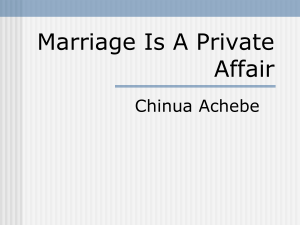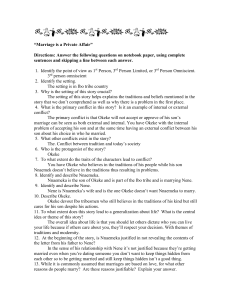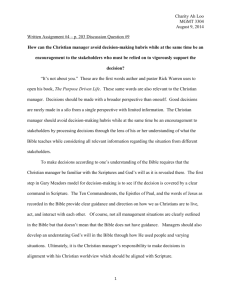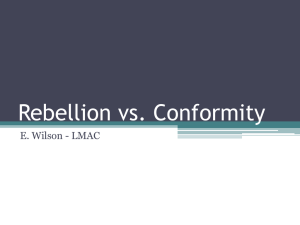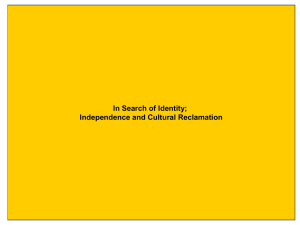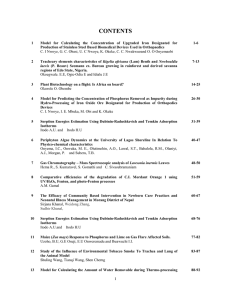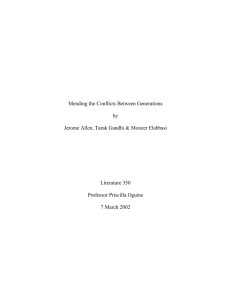, “Marriage is a Private Affair”
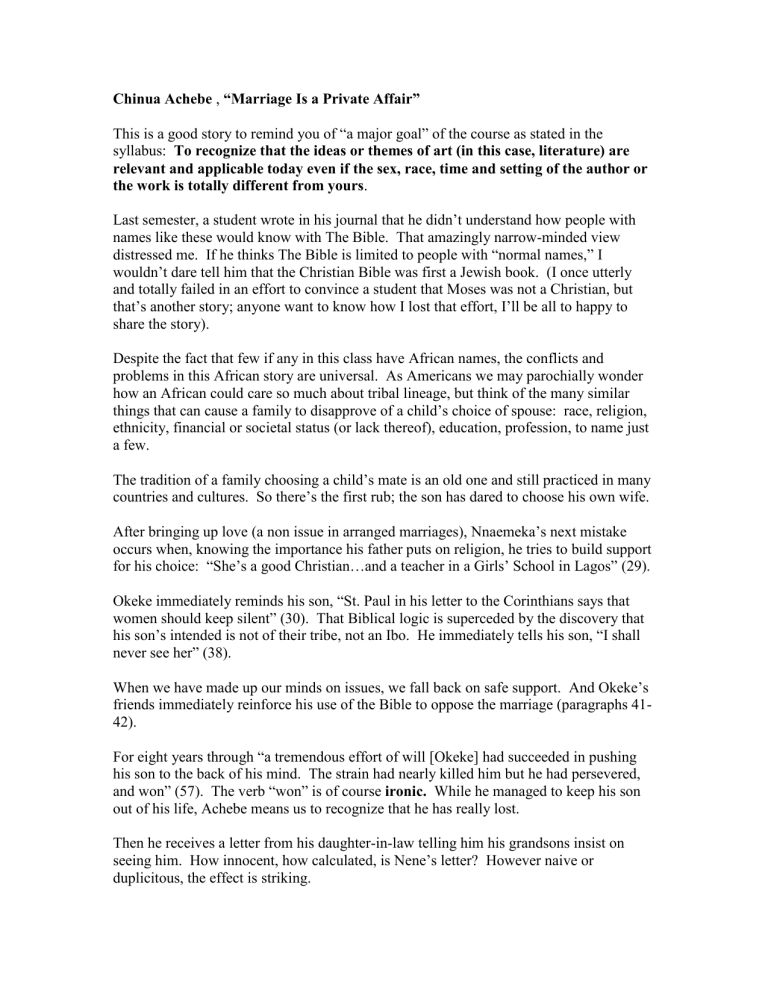
Chinua Achebe ,
“Marriage Is a Private Affair”
This is a good story to remind you of “a major goal” of the course as stated in the syllabus: To recognize that the ideas or themes of art (in this case, literature) are relevant and applicable today even if the sex, race, time and setting of the author or the work is totally different from yours .
Last semester, a student wrote in his journal that he didn’t understand how people with names like these would know with The Bible. That amazingly narrow-minded view distressed me. If he thinks The Bible is limited to people with “normal names,” I wouldn’t dare tell him that the Christian Bible was first a Jewish book. (I once utterly and totally failed in an effort to convince a student that Moses was not a Christian, but that’s another story; anyone want to know how I lost that effort, I’ll be all to happy to share the story).
Despite the fact that few if any in this class have African names, the conflicts and problems in this African story are universal. As Americans we may parochially wonder how an African could care so much about tribal lineage, but think of the many similar things that can cause a family to disapprove of a child’s choice of spouse: race, religion, ethnicity, financial or societal status (or lack thereof), education, profession, to name just a few.
The tradition of a family choosing a child’s mate is an old one and still practiced in many countries and cultures. So there’s the first rub; the son has dared to choose his own wife.
After bringing up love (a non issue in arranged marriages), Nnaemeka’s next mistake occurs when, knowing the importance his father puts on religion, he tries to build support for his choice: “She’s a good Christian…and a teacher in a Girls’ School in Lagos” (29).
Okeke immediately reminds his son, “St. Paul in his letter to the Corinthians says that women should keep silent” (30). That Biblical logic is superceded by the discovery that his son’s intended is not of their tribe, not an Ibo. He immediately tells his son, “I shall never see her” (38).
When we have made up our minds on issues, we fall back on safe support. And Okeke’s friends immediately reinforce his use of the Bible to oppose the marriage (paragraphs 41-
42).
For eight years through “a tremendous effort of will [Okeke] had succeeded in pushing his son to the back of his mind. The strain had nearly killed him but he had persevered, and won” (57). The verb “won” is of course ironic. While he managed to keep his son out of his life, Achebe means us to recognize that he has really lost.
Then he receives a letter from his daughter-in-law telling him his grandsons insist on seeing him. How innocent, how calculated, is Nene’s letter? However naive or duplicitous, the effect is striking.
The third person omniscient narrator notes, “It was one of those rare occasions when even Nature takes a hand in a human fight” (59). The change of season, the first rain
(suggesting new life), parallel and symbolize Okeke’s change of mind and new life. He tries “to hum a favorite hymn” (trying again to fall back on religion to support his rejection) but fails. Hardly sleeping that night, he fears he might die without “making it up” to his grandsons.
This story and “A Rose for Emily” are the first works in our “Culture and Identity” section. The influence of the characters’ culture on their identity is pervasive in both.
After “Innocence and Experience,” I skipped the “Conformity and Rebellion” section because it seemed we need to have culture and identity before we have conformity and rebellion. At any rate, we will conform and/or rebel next.
